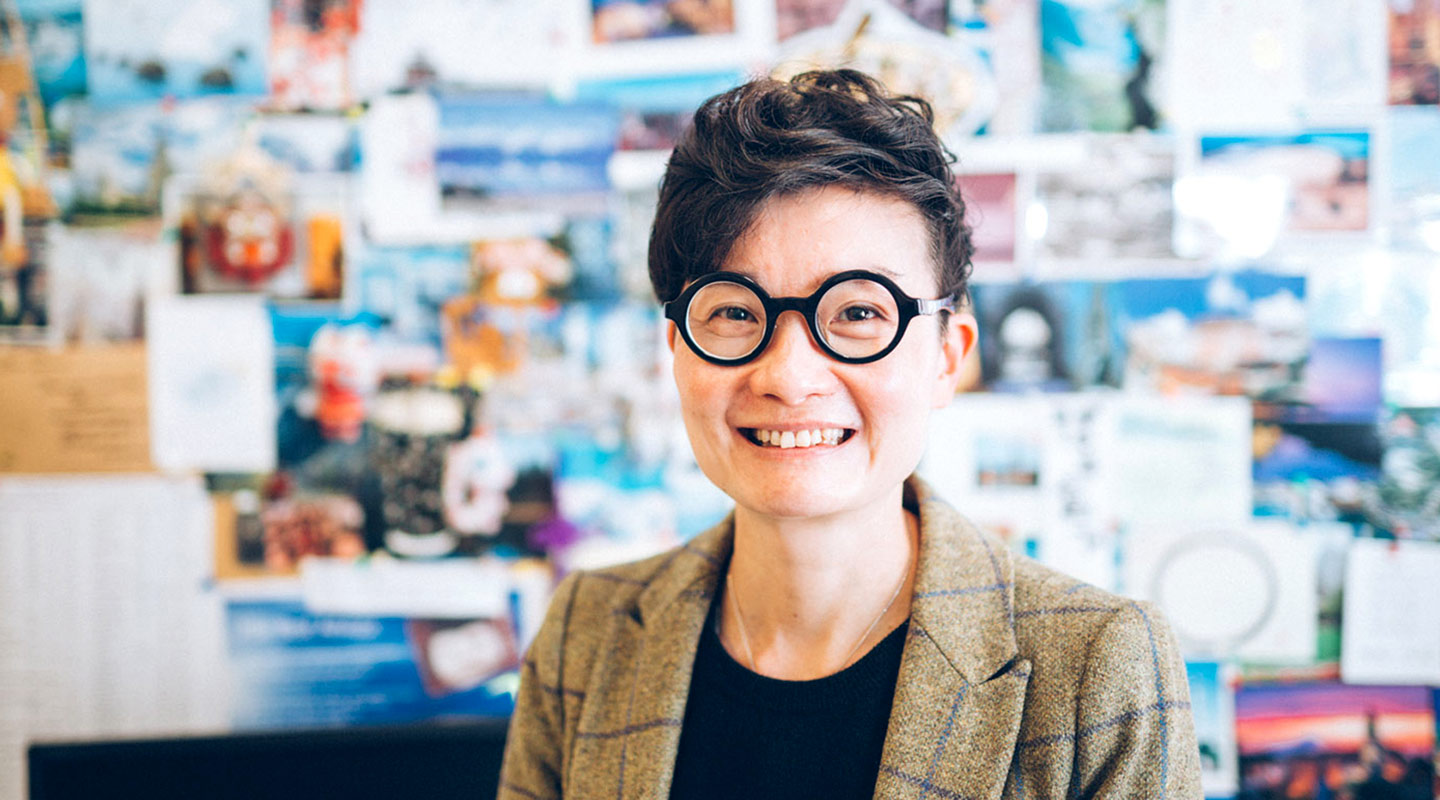Dear readers, With the launch of e-newsletter CUHK in Focus, CUHKUPDates has retired and this site will no longer be updated. To stay abreast of the University’s latest news, please go to https://focus.cuhk.edu.hk. Thank you.
Not Always Clear of Clouds
A CUHK psychologist's positive take on mental illness

Hong Kong is 'illiterate' on the topic of mental illness, a CUHK clinical psychologist says. But all citizens benefit from realizing they are somewhere along a spectrum, and have a right to mental health.
There’s a gruesome murder in a public housing estate. There’s a bad case of arson. Or someone takes his family hostage in a death pact. The conclusion in the media is inevitably the same – the suspect showed signs of mental illness.
It’s just that kind of stigma CUHK psychology professor Winnie Mak wants to dispel. Her work in the classroom and the community is designed to explode the myths around mental illness – and make all citizens realize that their state of mind matters, whatever state it’s in.
'Mental health is a right,' Professor Mak says. 'People do a physical checkup, and it’s not stigmatizing. But people don’t do a mental health checkup.'
Hong Kong is 'illiterate' when it comes to mental health, Professor Mak states. People don’t generally talk about mental conditions, and there’s a perception that people who suffer should simply have the self-discipline to move past their problems.
Chinese culture may play a part in the reticence of Hongkongers to address mental health, she believes. Such a tight-knit society values conformity. Anyone who is an anomaly reflects poorly on the individual and, by extension, his/her family.
That’s reflected even just in the plain language we use. 'When we try to curse someone, we say that person is nuts,' Professor Mak says. 'But we never curse that somebody is diabetic.'
Professor Mak has recently won three awards at CUHK. She picked up the research-excellence award for her work on the stigmatization of mental health and the promotion of mental health; the faculty mentorship award for fostering postgraduate research students; and outstanding-fellow status in the Faculty of Social Science faculty for her academic achievements. She is the associate dean of research in the Faculty, and the director of graduate studies in clinical psychology.

Professor Mak equally sees community engagement as part of her work. The public mental-health system is inadequate, she notes, with lengthy waitlists and infrequent follow-ups. The private system is also woefully understaffed, and expensive.
Two years ago, Professor Mak co-founded the community group StoryTaler, to promote mental health and combat stigma by connecting those with 'lived experience' of mental-health issues and those interested in the topic. Its Facebook page has more than 100,000 'reaches' weekly.
'A lot of people have been closeted, worried the public, peers or their families may not accept them,' Professor Mak says. 'With this outlet, people are willing to share. It’s a very empowering process.'
CUHK’s Knowledge Transfer Project Fund is supporting her efforts to promote mental-health education and training among the public. That’s achieved by holding workshops, visiting schools and community organizations, producing videos, and setting up a mental-health Website.

Despite general citywide ignorance, schools and community groups are starting to pay attention to mental health. That’s particularly true after suicides of school-aged children were reported.
'Schools do care about these things,' Professor Mak says. 'They just don’t know where to get information. Sometimes students just spend too much time learning maths.'
She advocates mindfulness, an increasingly popular psychological approach to life, as a way of being for Hongkongers to adopt. Her team is developing a smartphone app that randomly prompts people to be mindful several times a day, and care for their inner needs. The aim is to roll out the app to the public this summer.
'We want to anchor that person back to the present moment,' she explains. 'Over time, it will become a habit.'
Professor Mak is also leading a randomized controlled trial, TourHeart, to discover whether or not mindfulness can prevent anxiety and depression. It may help people who ruminate a lot on the past or worry a lot about the future the most, since they are prone to mental-health conditions.
The trial is recruiting participants who are at high risk but do not yet have a diagnosis. They are randomly assigned to three groups: one that receives rumination-focused cognitive behavioural therapy, which has been proven to have positive effects; one that receives mindfulness training; and one that receives a placebo.
Her earlier trials showed that cognitive behavioural therapy and mindfulness training have similar positive effects. Both promote mental health. Mindfulness may better suit people who can 'tolerate ambiguity,' while 'CBT' suits people who require structure.
Many mental-health issues may be chronic. But while continuing to have a condition, people can still pursue meaningful lives, something treatment should encourage and enhance.
'Mental health is not just the absence of mental illness,' Professor Mak says. 'It asks how we can have peace of mind, how we can have meaning in life, how we can have a sense of belonging – and how we can make a contribution to society.'
By Alex Frew McMillan
This article was originally published on CUHK Homepage in Jul 2017.